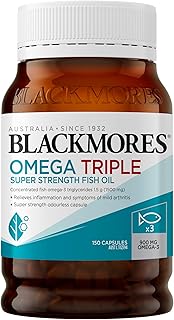Omega-3 fatty acids have long been hailed for their numerous health benefits, from supporting heart and brain health to improving skin and boosting the immune system. These essential nutrients are not naturally produced by the body, making it crucial to incorporate omega-3-rich foods into your diet or take supplements to meet daily requirements recommended by health experts.
Fatty fish like mackerel, salmon, and herring are excellent sources of EPA and DHA, two essential types of omega-3 fatty acids. Mackerel, abundant in the Mediterranean, is a protein-packed fish with high omega-3 content, while salmon, a favorite of celebrities like Victoria Beckham, offers a range of nutrients along with its omega-3 benefits.
Chia seeds and flaxseed oil are plant-based sources of omega-3, rich in ALA, a precursor to EPA and DHA. Chia seeds, popular in various recipes, are packed with essential nutrients and omega-3 fatty acids, while flaxseed oil is a highly bioavailable form of ALA that can be easily incorporated into salads and soups.
Sardines, walnuts, and oysters are other omega-3-rich foods that offer a range of health benefits. Sardines, rich in vitamin D and selenium, provide a significant amount of EPA and DHA, while walnuts, packed with essential minerals, offer a substantial dose of ALA. Oysters, a nutrient-dense seafood, are a good source of EPA and DHA, along with other essential nutrients like zinc and copper.
Hemp seeds and seaweed are superfoods that not only provide a host of nutrients but also contain omega-3 fatty acids. Hemp seeds, a complete protein source, are rich in ALA, while seaweed, a staple in Japanese cuisine, offers EPA and DHA along with antioxidants and anti-inflammatory properties.
While fish oil supplements are a concentrated source of omega-3 fatty acids, caviar and soybeans are additional food options to consider. Caviar, despite its indulgent reputation, is a healthy source of omega-3 along with essential vitamins and minerals, while soybeans, available in various forms like edamame and tofu, contain ALA to enhance the nutritional profile of your meals.
As experts recommend incorporating at least two servings of fatty fish per week to meet omega-3 requirements, diversifying your diet with these 13 omega-3-rich foods can have lasting benefits for your overall health and well-being. Whether through dietary choices or supplements, ensuring an adequate intake of omega-3 fatty acids is key to supporting various bodily functions and promoting longevity.
📰 Related Articles
- Incorporate Hydrating Foods for Optimal Health and Hydration
- Unlock Health Benefits with Probiotic-Rich Fermented Foods
- Study Reveals Surprising Benefits of Fermented Foods Beyond Gut Health
- Incorporating Low-Carb Foods for Health Benefits and Weight Loss
- Incorporating Fiber-Rich Foods for Optimal Health: Expert Advice






